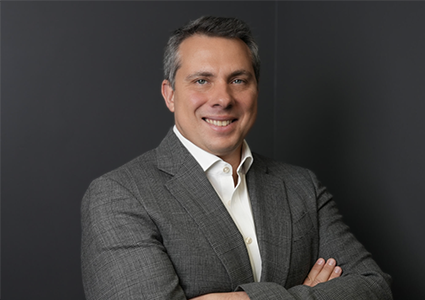
Skillsets that make people thrive in the workplace. By Yevgeny Senderov
In today’s dynamic and ever-evolving work environment, skills are a form of currency – the more you have, the more value you are holding in your hands. Just as a diversified investment portfolio hedges against financial risks, a diversified skillset hedges against a potential career stagnation. Falling behind in skills and failing to adapt to the ever-changing landscape can leave a career stuck in a standstill, limiting the prospects for advancement and income growth.
The good news is, that in today’s constantly changing work environment, success is not solely determined by traditional qualifications or static skillsets. Instead, it is shaped by a combination of adaptable qualities and traits that anyone, despite their career choice, can develop, when combined with a dedication to personal growth.

Adaptability and willingness to learn
Irrespective of occupation, the ability to promptly adapt and react to diverse circumstances, swiftly adjusting to the workflow to the ever-changing environment, is an important skill to have; this trait transcends age, experience, and industry. Adaptability actually ranks among the top five qualities sought by most employers. Those who grasp this concept and maintain an open, flexible, and adaptable mindset are better equipped to thrive in their careers (and personal lives, too!)
Adaptability in the workplace is not about constantly changing one’s core values or principles. Instead, it involves the ability to adjust strategies and approaches to effectively respond to shifting circumstances while staying true to fundamental principles and the desired outcomes, continuously. The world and business environment are constantly changing, and we must be able to change along. The essence of adaptability lies in the willingness to accept that despite the extensive experience, one never truly knows everything. What worked five years ago may not work now – but demonstrating the courage and curiosity to explore alternative approaches is the key. It is not about having all the answers but rather about being curious and open to new information and being eager to always expand the knowledge. It is also about the willingness to continue learning throughout one’s career, even at a senior level. The most successful CEOs and business leaders that I know are constantly seeking out knowledge from those around them and from formal opportunities for education (executive education programs or seminars).
The power of self-discipline and organization
Successful individuals often share another trait: being organized and disciplined about their time. Organizational skills encompass essential soft skills that enable individuals to effectively manage expectations, stay alert and on top of tasks, and consistently deliver results in a timely manner. It’s not about waking up every day at 5am (though apparently it is a trait most successful executives share), but rather about an overall self-discipline on effective planning and managing one’s day. Even though industry leaders often attribute their success, in part, to their early-rising habits, this does not mean that everyone must become an early bird. What’s essential is the ability to structure and manage time efficiently, ensuring that daily objectives are met, tasks are completed, so that by the end of the day, the planned tasks are executed to the best of one’s ability.
Effective organizational skills are even more important for geographically distributed teams, larger companies, and global workforces, particularly when collaborative projects involve numerous contributors, and tasks are carried out across different time zones.
Developing strong organizational skills is an ongoing process; if one is lacking such skills, they can be fostered by creating systematic work processes and structures – provide the teams and individuals with new responsibilities or challenges, such as time management and organization, and assign them tasks related to organizing progressively more complex projects over time.
An important aside, that only through self-discipline and careful time management, you can also live a fulfilling life outside of immediate work and allocate time to devote to your hobbies and pursuits and spend time with family and friends.
Emotional intelligence 
In today’s professional landscape, emotional intelligence, otherwise also called EQ, is a critical asset for effective leadership and teamwork. While being highly skilled in a particular field is commendable, it is insufficient when it comes to leading an organization or managing large, multinational teams. Emotional intelligence is the key to understanding and effectively working with people.
Emotional intelligence is both an ability to understand and manage your own emotions while also comprehending the emotions of those around you. Individuals with high emotional intelligence can identify how they are feeling, what those feelings mean, and how their emotions and behaviors impact others. But on an even more basic level, individuals often talk past each other, not really comprehending the point the other side is trying to make. Individuals with high emotional intelligence can identify not only emotions of people around them and can ‘put themselves in others’ shoes,’ but also simply really understand the logic of the point the other side is trying to convey. EQ begins with ‘effective listening’ and involves comprehending people’s strengths and weaknesses, understanding their motivations, and communicating with empathy and authenticity.
Emotional intelligence enables leaders to inspire and guide their teams, fostering a positive work environment that thrives on collaboration and mutual respect, and equips employees with enhanced communication, conflict resolution, and problem-solving abilities.
Practical skills and languages
Over the past decades our world has become more interdependent. Thanks to new technological advancements, we are now able to connect and work in close contact with people all over the world, which is why in today’s increasingly quantitative world, practical skills have become indispensable. Speaking an additional language (or two, or three…) can help anyone get ahead in their career. Cultivating multilingual proficiency acts as a potent catalyst for elevating career horizons, improving chances of doing business or finding work internationally.
For instance, a professional working for a multinational corporation may find themselves managing a market in South America or Asia due to their language proficiency. In a world where communication knows no borders, practical skills like these can open doors to exciting opportunities and career growth.
In conclusion, the path to success in today’s dynamic work environment is paved with commitment to growth. Adaptability, organization, emotional intelligence, and a dedication to continuous learning are the key skillsets that set successful individuals apart. Success is no longer defined by what you know but by your willingness to learn, grow, and evolve with the ever-changing world.
Yevgeny Senderov is CEO at Dyninno Group of Companies, a group of companies providing products and services in the travel, finance, entertainment, and technology sectors in 50+ countries. It was founded in 2004 in San Francisco by Alex Weinstein. Today, over 5,000 professionals work in the company around the world.